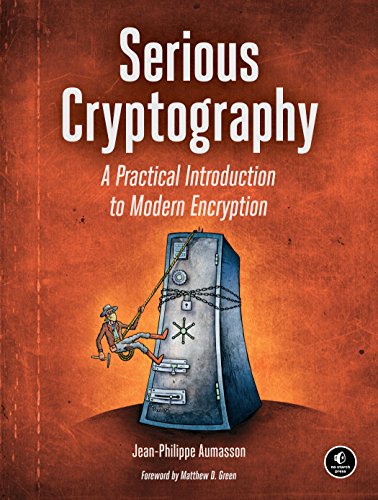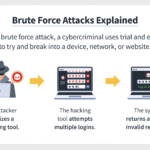Cryptography, the enigmatic art of encoding information, has captivated thinkers for centuries. From the ancient ciphers of Julius Caesar to the complex algorithms governing modern digital security, the evolution of cryptography is as fascinating as it is essential. In this exploration of the best beginners’ books on this compelling subject for 2025, not only will we provide recommendations, but we will also delve into why this field continues to intrigue and engage minds across the globe.
As societies progress into a digital age where information is both an asset and a vulnerability, the understanding of cryptography becomes integral. It’s not merely about locking away secrets; it’s about the foundational trust that underpins our communications and transactions. Thus, the exploration of cryptography reveals profound implications for privacy, security, and even the integrity of democratic systems.
The following list of books is tailored for beginners yearning to grasp the core principles and applications of cryptography, providing both theoretical insight and practical knowledge that will foster a deeper appreciation for this vital discipline.
The Code Book: The Science of Secrecy from Ancient Egypt to Quantum Cryptography
Authored by Simon Singh, this masterpiece serves as an accessible yet comprehensive primer. Singh’s narrative intertwines historical anecdotes with scientific principles, making complex concepts approachable. The book traces the lineage of cryptographic techniques, from simple substitution ciphers to the tantalizing prospects of quantum encryption. It is an exploration that not only illuminates the mechanisms of codes but also contextualizes their socio-political consequences. Readers will find themselves enchanted by the stories of figures such as Alan Turing and the legendary Enigma machine, discovering how their endeavors paved the way for modern cryptography.
Cryptography and Network Security: Principles and Practice
Written by William Stallings, this text is a staple in the domain of information security. It straddles the line between academic rigor and practical application, making it a superb resource for beginners. Stallings meticulously outlines various cryptographic algorithms, protocols, and practical system implementations. His discussion of symmetric and asymmetric key cryptography, hashing functions, and digital signatures is crucial for understanding modern security architectures. Additionally, the inclusion of real-world applications enhances its relevance, drawing connections between theoretical principles and everyday digital security practices.
Understanding Cryptography: A Textbook for Students and Practitioners
This book by Christof Paar and Jan Pelzl offers clarity, making it ideal for those embarking on their cryptographic journey. The authors present the subject matter methodically, incorporating engaging illustrations and practical exercises. Not only does the book cover classical cryptography, but it also demystifies contemporary methods, including block ciphers and public-key systems. The integration of exercises at the end of each chapter enables readers to solidify their understanding, fostering a hands-on approach to the theoretical underpinnings of cryptography.
Practical Cryptography for Developers
For the technologically inclined, this book by Svetlin Nakov is indispensable. It bridges the gap between cryptographic theory and practical implementation, specifically tailored for aspiring software developers. Nakov delves into the nitty-gritty of cryptographic libraries and frameworks across various programming languages. He elucidates the best practices for integrating cryptography into application design, providing valuable insights into secure coding methods. This hands-on approach empowers developers to create robust security systems, reinforcing the book’s relevance in a world increasingly reliant on technology.
The Cryptopals Crypto Challenges
Although not a traditional book, the Cryptopals Crypto Challenges serve as an invaluable learning resource for beginners. The site offers a series of progressively challenging problems that encourage practical engagement with cryptographic concepts. By solving these puzzles, learners can develop firsthand experience with cryptographic algorithms and techniques. The interactive nature of this resource makes it not only educational but also entertaining, cultivating a deeper passion for cryptography through active participation.
Applied Cryptography: Protocols, Algorithms, and Source Code in C
Bruce Schneier’s seminal work deserves mention for its breadth and depth. Although it leans towards a more technical audience, beginners will find it beneficial as they advance. The book encompasses a wide range of cryptographic protocols and algorithms, with a particular focus on their implementation in computer systems. Schneier’s insights into cryptographic design, security issues, and policy considerations make it a comprehensive resource for understanding both the theoretical framework and practical implications of cryptography.
As one delves into these texts, the allure of cryptography unfolds further. It encapsulates the struggle for privacy and security, akin to a perpetual game of cat and mouse between those who seek to protect information and those who attempt to exploit vulnerabilities. The sheer breadth of cryptographic applications—from securing communications in personal messaging apps to safeguarding national security—underscores its significance in contemporary society.
Moreover, the philosophical implications of cryptography warrant examination. The ways in which encryption maintains confidentiality and protects intellectual property provoke discussions on morality and ethics in a digital age. Cryptographers often grapple with questions surrounding surveillance, data ownership, and the balance between security and freedom. Thus, a study of cryptography is not merely academic; it is an exploration of the values that govern our society.
In summary, the best cryptography books for beginners in 2025 present an enriching exploration of this essential field. They provide foundational knowledge while also hinting at the deeper, compelling reasons why cryptography continues to captivate. Readers will emerge not just with knowledge but with an enduring fascination, equipped to navigate the complexities of a world where information security is more crucial than ever.








Leave a Comment